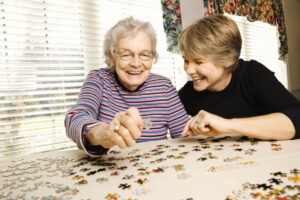Caring for a family member is one of the best ways to show your love for them. But being a caregiver can also strain your physical, mental, and emotional health. It’s natural to feel burned out after taking care of someone else’s needs for a while.

To help you rejuvenate yourself and take care of your mental state, you must give yourself time away from your caregiving responsibilities every so often. Here are some of the best ways to manage caregiver fatigue.
Understand Signs That You’re Experiencing Caregiver Fatigue
Before adequately managing caregiver fatigue, you need to know if you have it or if something else is happening. Here are some of the most common signs of caregiver fatigue.
- Feeling tired all the time
- Having frequent headaches and other body aches
- Experiencing feelings of sadness and irritation
- Abusing drugs, alcohol, or prescription drugs
- Getting too little or too much sleep
- Losing interest in hobbies and other activities you used to enjoy
- Withdrawing from friends and family
- Feeling constantly worried and overwhelmed
- Losing or gaining weight
These are just a few of the possible symptoms associated with caregiver fatigue. But, if you don’t learn how to minimize or manage them, they could cause long-term health consequences.
Focus on Things You Can Control
When you are responsible for caring for someone else, many things may seem out of your control. Even your daily schedule may seem out of your control. It’s easy to become overwhelmed when you feel like your life’s major and minor events never end. To avoid feeling overwhelmed or helpless, try to focus on things you can control.
For instance, you can control what you eat and how you take care of your body. You can also control how you react to certain situations. Getting outside help when necessary is another thing you can control to benefit your mental and emotional health.
Develop Coping Tools and Techniques
You can use coping tools and techniques to minimize your stress and help you stave off symptoms of caregiver fatigue. They include:
- Spending quality time doing things you love with people you love. Don’t lose your sense of self while taking on a caregiving role. You still need to nurture your relationships and your health.
- Focusing on the positive. Keep a gratitude journal so you can keep track of the good things that happen from day to day.
- Accept yourself and your weaknesses. For example, don’t beat yourself up if you have a bad day or lose your patience sometimes.
- Take a time out when you need one. It might be as simple as going outside and pulling a few weeks or taking a walk around the block.
Allow Someone Else To Help
In addition to the above coping techniques, it is also essential to recognize when you need help. No one can do it all on their own. So recognize it when you need assistance, and don’t be afraid to ask for help. At Elder Care Alliance, we offer compassionate caregiving services for aging adults. We encourage you to take our care assessment to determine whether our organization can help you and your loved one.




















